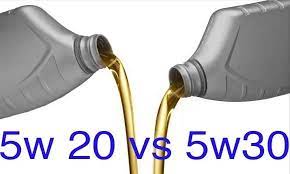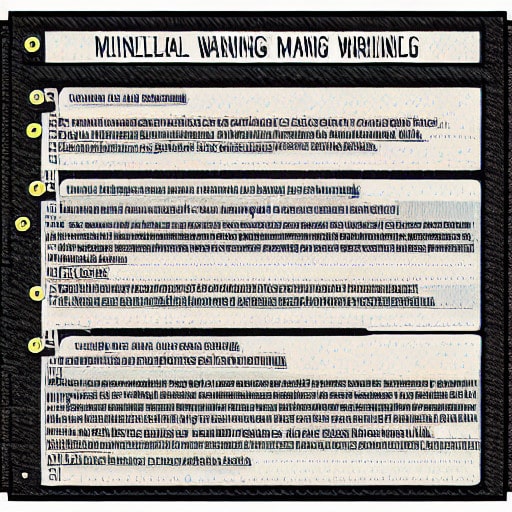Motor oil plays a crucial role in the proper functioning and longevity of an engine. With various types and viscosity ratings available, it’s important to know if you can mix different oils, such as 5W20 and 5W30. In this article, we will delve into the compatibility of these two oils If you mix 5W20 and 5W30 and shed light on the potential effects of mixing them.
What are 5W20 and 5W30 oils?
Before exploring their compatibility, let’s understand what 5W20 and 5W30 oils are. These numbers refer to the viscosity grade or thickness of the oil at different temperatures. The “W” stands for winter, indicating how the oil performs in colder conditions. The lower the number, the thinner the oil, while the higher the number, the thicker the oil. Both 5W20 and 5W30 oils are commonly used in modern vehicles.
Difference Between 5W20 and 5W30 Oils

- The main difference between 5W-20 and 5W-30 oils lies in their viscosity or thickness.
- 5W-20 oil is thinner and has a lower viscosity compared to 5W-30 oil.
- Thinner oils, such as 5W-20, flow more easily at lower temperatures, providing better initial engine start-up lubrication.
- 5W-30 oil, being slightly thicker, offers better protection against heat and maintains its viscosity better in high-temperature conditions.
- Vehicle manufacturers specify the recommended oil viscosity to ensure optimal engine performance and efficiency.
- Choosing between 5W-20 and 5W-30 oils depends on factors like climate, driving conditions, and manufacturer recommendations.
- It is crucial to follow the manufacturer’s guidelines when selecting the appropriate oil viscosity for your vehicle to ensure proper engine lubrication and protection.
Can you mix 5W20 and 5W30 oils?
The short answer is yes, you can mix 5W20 and 5W30 oils. However, it is essential to consider certain factors before doing so. While both oils share similarities, they do have differences in their viscosity ratings, which can impact their performance when mixed.
Effects if you mix 5W20 and 5W30 oils
When you mix 5W20 and 5W30 oils, the resulting viscosity may fall somewhere between the two oils. This can affect the oil’s ability to lubricate and protect engine components effectively. Additionally, mixing oils with different formulations and additives can alter their chemical balance, potentially reducing their overall effectiveness.
What happens when you mix 5W20 and 5W30 oils?
If you mix 5W20 and 5W30 oils, it can lead to a change in the oil’s properties and performance. The blended viscosity may not provide optimal lubrication, potentially leading to increased friction and wear on engine parts. It can also impact the oil’s ability to flow efficiently at different temperatures, affecting engine start-up and performance. The overheating problem may occur due to improper viscosity.
Is it Recommended to Mix 5W20 and 5W30?
Most vehicle manufacturers and oil experts do not recommend mixing different viscosity oils unless specifically mentioned in the owner’s manual. They emphasize the importance of following the manufacturer’s recommendations to ensure optimal engine performance and longevity. Mixing oils may also void any warranty claims related to engine damage.
Best practices for oil maintenance

To maintain your vehicle’s engine and avoid complications, it is advisable to follow these best practices:
Consult the owner’s manual: Always refer to the manufacturer’s recommendations regarding the appropriate oil viscosity for your vehicle.
Stick to one oil type: It is generally best to use a single type of oil to ensure consistency and compatibility within the engine.
Regularly change your oil: Follow the recommended oil change intervals to keep your engine running smoothly and to maintain optimal performance.
Conclusion
While it is technically possible to mix 5W20 and 5W30 oils, it is not recommended due to the potential adverse effects on engine performance and longevity. Following the manufacturer’s guidelines and using the recommended oil for your vehicle is the safest way to ensure proper lubrication and protection. By adhering to these best practices, you can keep your engine running smoothly for years to come.
FAQ
Can I mix 5W-20 and 5W-30 oils in an emergency?
In an emergency situation, it is better to have some oil in your engine rather than none. If mixing oils is the only option, it is recommended to use the same brand and viscosity range to minimize potential issues.
Will mixing 5W-20 and 5W-30 oils cause immediate engine damage?
Mixing these oils is unlikely to cause immediate engine damage. However, prolonged use or repeated mixing can lead to long-term issues, such as increased wear and reduced engine performance.
How can I determine the right oil for my vehicle?
The best way to determine the right oil for your vehicle is to consult the owner’s manual. It provides detailed information on the recommended oil viscosity and specifications for your specific make and model.
I accidently used 5w30 instead of 5w20. Will it cause damage?
Using 5W-30 oil instead of 5W-20 oil accidentally is unlikely to cause immediate damage to your engine.
However, it is important to monitor your engine’s performance and consider an oil change at the earliest opportunity.
The slight difference in viscosity may affect lubrication, but the potential impact is typically minimal.
Consulting a professional or referring to your vehicle’s owner’s manual for guidance is recommended.
Can we mix 5w30 and 10w30?
Yes, 5W-30 and 10W-30 oils can be mixed as they have similar viscosity ranges and compatibility.
However, it’s always best to follow the manufacturer’s recommendations and use a single type of oil for optimal performance.
